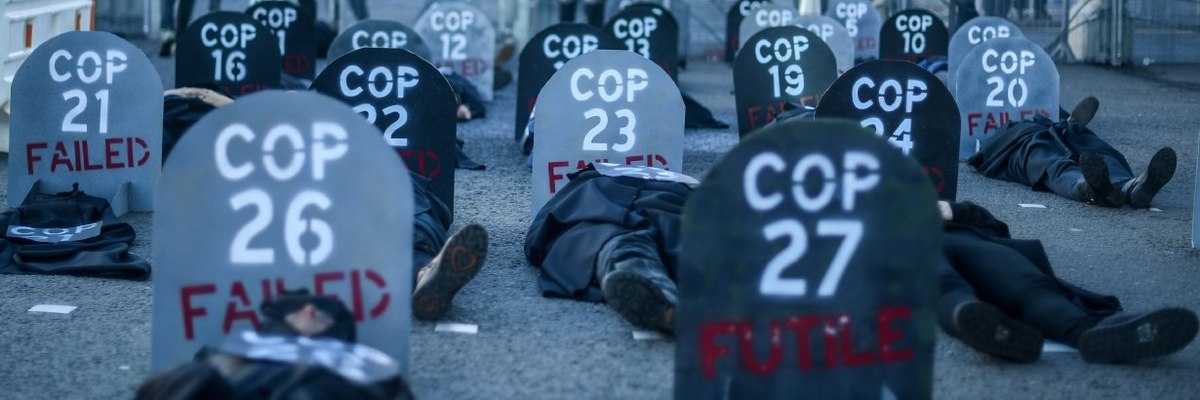Three in five Britons think we can still avoid the worst effects of climate change, but that it will take drastic changes to do so
With the COP27 climate change conference only one week away, a new YouGov Political Research survey has revealed that only one in nine Britons (11%) believe the event will make much difference to tackling climate change.
The 27th United Nations Climate Change conference, held from 6-18 November in Egypt, will see world leaders gather to discuss how the world is tackling rising temperatures. The annual summit made the headlines earlier in October when it was reported that King Charles will not attend the conference following advice from the then prime minister Liz Truss.
Seven out of ten Britons (70%) think it is unlikely that COP27 will result in significant action to tackle climate change. A year ago, the British public held a similar view before the UK hosted COP26 with 68% unconvinced the conference would result in any significant progress.
A quarter of Britons (24%) see the conference as an opportunity to bring together key players to put in place plans to effectively tackle climate change, but almost half (47%) believe that while the summit brings attention to the issue of climate change, it does not do anything to tackle the issue in practical terms.
Just over half of the British public (54%) think that meetings of international leaders, like COP27, have a very big or significant role in addressing the environment. This is lower than any other measure we asked about, including trade deals that require countries to cut emissions (68%), United Nations action on the environment (63%) and public pressure on governments to take action (61%).
Britons are most likely to say that the development of cleaner and more environmentally friendly technologies plays a very big/significant role, at 77%, followed by 73% who believe that companies promoting more environmentally friendly practices has a very big or significant role in addressing climate change.
Two thirds of Britons are worried about the effects of climate change
As presidents and prime ministers prepare to gather in Sharm el-Sheikh to discuss how the world is tackling rising temperatures, the latest YouGov polling shows that two-thirds of Britons (67%) are worried about climate change and its effects, with a quarter (26%) not currently worried. Those who voted for Labour in the last general election are much more likely to be worried about climate change (84%) than those who voted Conservative (55%).
Yet only a third of the population (34%) feel that climate change needs to be treated as a priority in terms of government spending, even at the expense of cuts elsewhere, whereas 40% think there are more urgent priorities than climate change where spending should be focused.
Political persuasion also plays a part in how Britons feel about government investing in tackling climate change. The majority of Labour voters (52%) believe that spending on preventing the impact of climate change is a priority and should be increased, even if this means cuts elsewhere, compared to one in five Conservative voters (19%).
The majority of the British public think we can still avoid environmental disaster if we act quickly
The UN's 2022 Emissions Gap Report shows that updated national pledges since COP26 make a negligible difference to predicted 2030 emissions, and under current policies we are heading towards a 2.8C temperature rise by the end of the century. It is believed in order to avoid the worst effects of climate change the rise in temperatures will need to be kept below 1.5C.
So, is it now too late in the eyes of the public?
Three in five people (62%) say that the worst effects of climate change can still be avoided if drastic changes are taken now. A further 10% believe that the steps currently taken are enough but 16% believe that the damage is already done and that it is already too late.
The younger generation are slightly more optimistic that there is still time to avoid the worst effects of rising temperatures with just 7% thinking it is too late compared to almost one in five of those aged 50 to 64 (18%) and 15% of those aged 65 and over.
Photo: Getty








